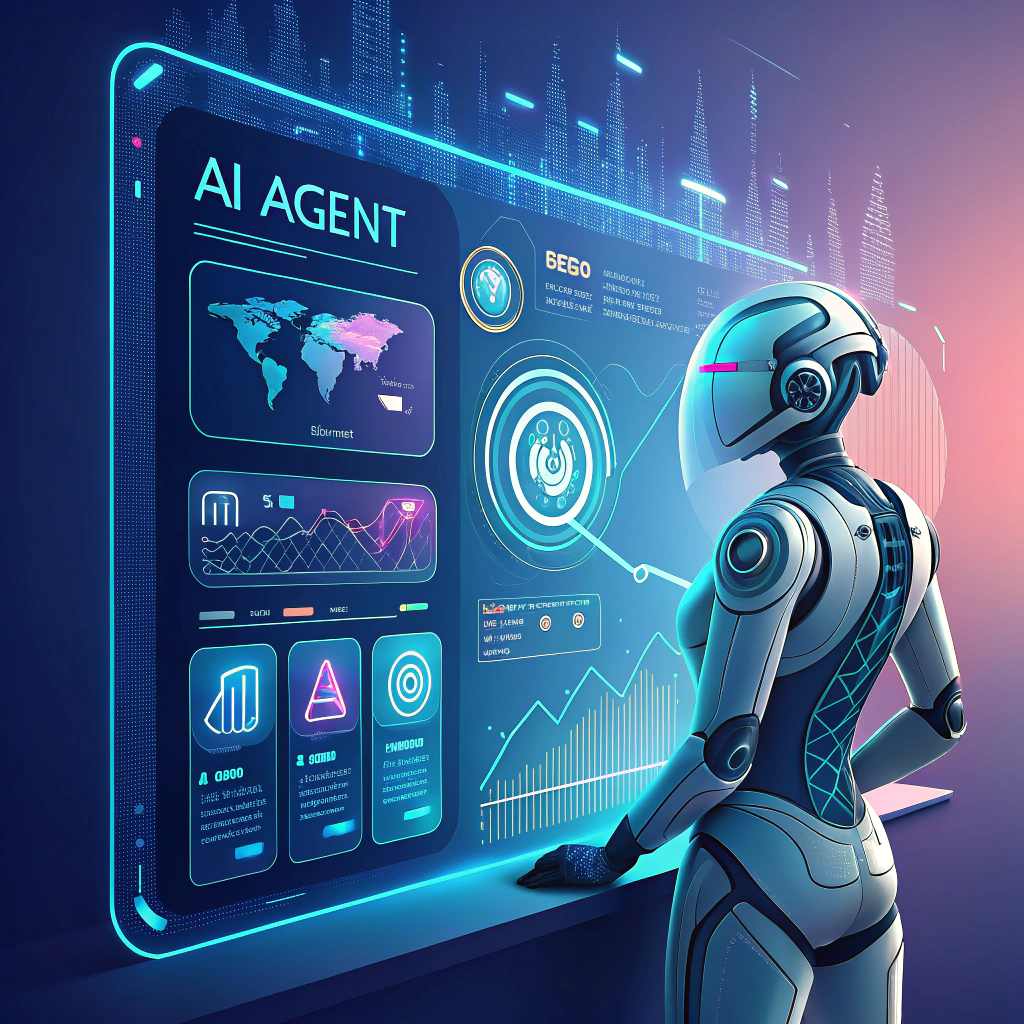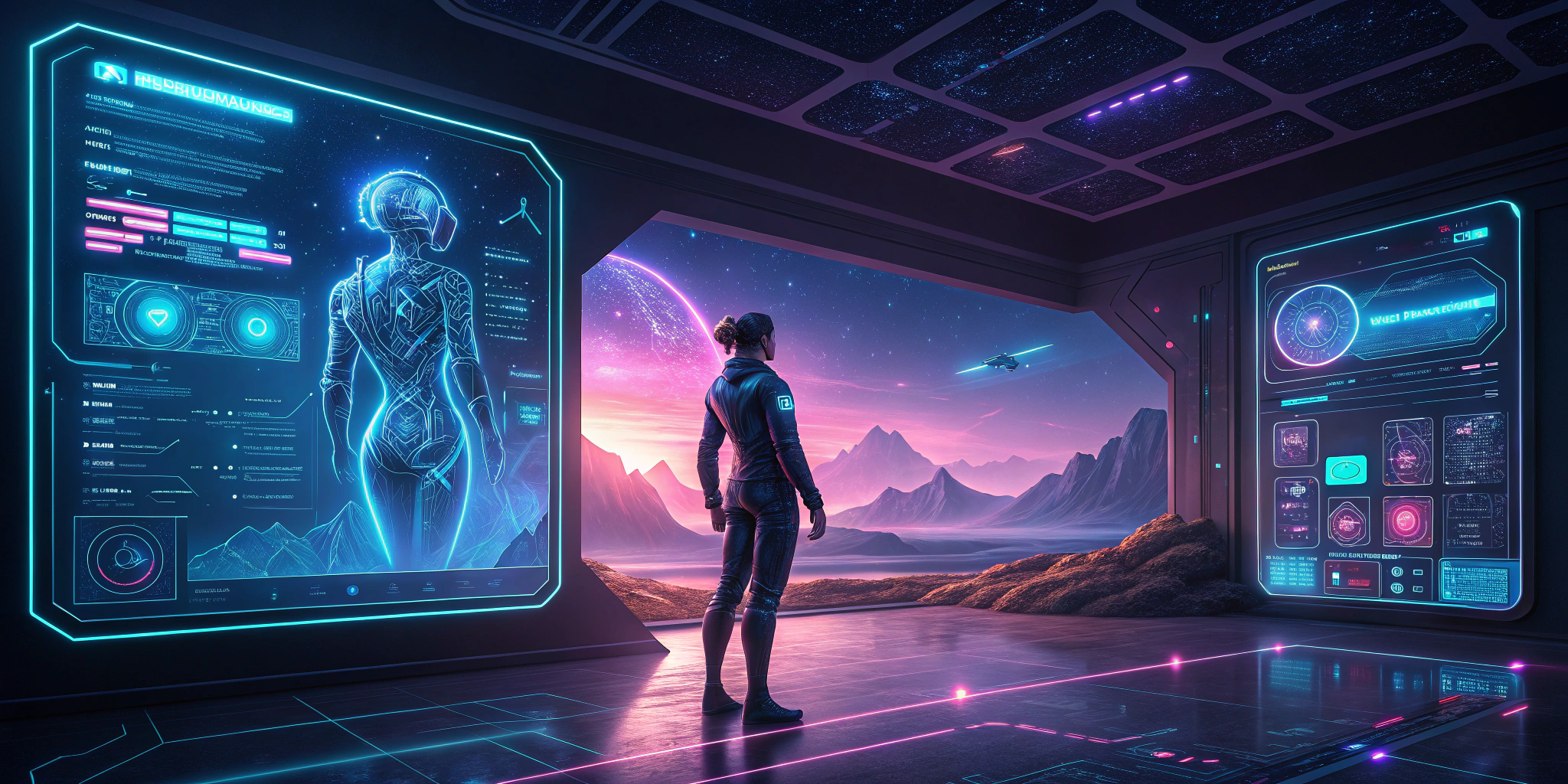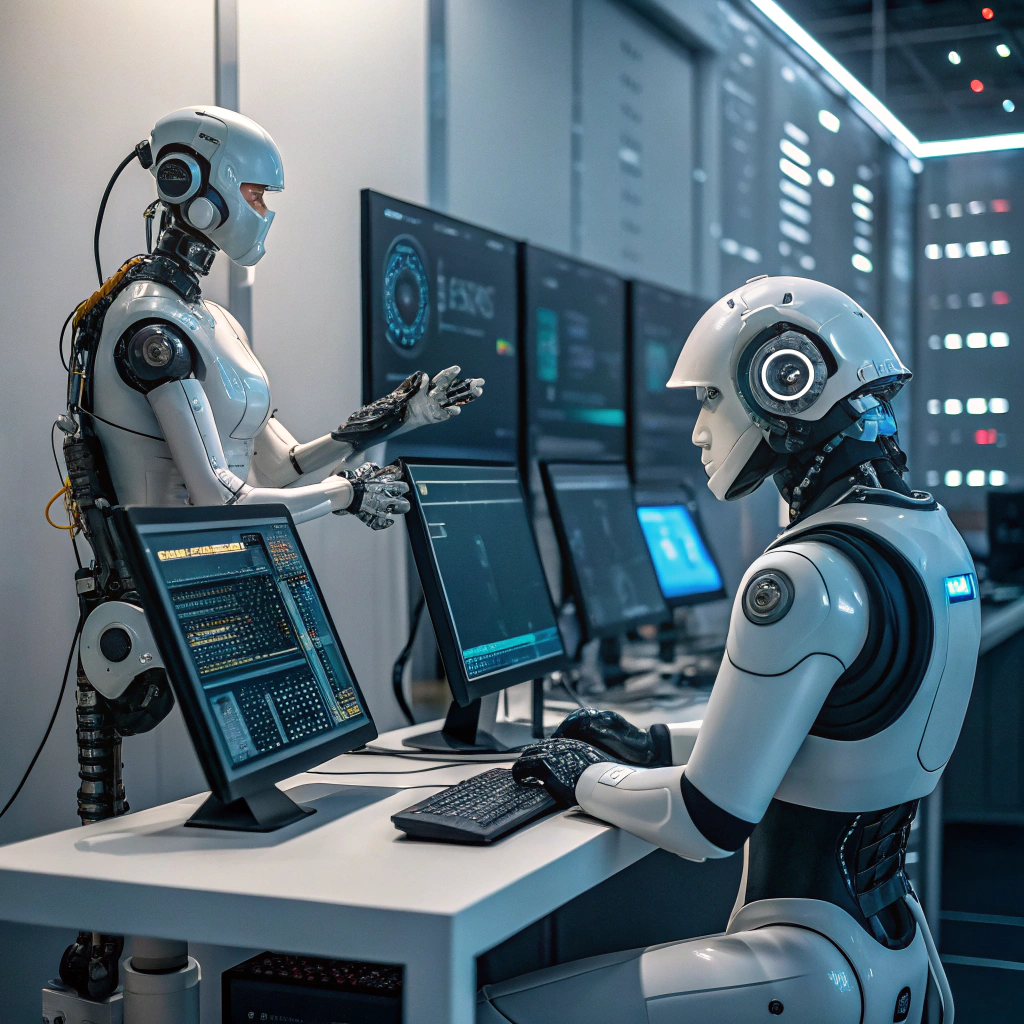AI Agents: Revolutionizing the Future of Automation and Decision-Making

In today's fast-paced digital era, Artificial Intelligence (AI) has emerged as a transformative force, reshaping industries, workflows, and decision-making processes. Among its many innovations, AI agents stand out as one of the most dynamic and impactful technologies. These intelligent systems are designed to automate tasks, analyze data, learn from experience, and assist humans in decision-making. By leveraging advanced machine learning algorithms and natural language processing capabilities, AI agents have the potential to dramatically influence various aspects of society and business.
In this article, we delve into the world of AI agents, exploring their characteristics, applications, benefits, challenges, and future trends. This SEO-friendly guide aims to provide a comprehensive understanding of AI agents and their role in driving global progress.
What Are AI Agents?
AI agents, also known as intelligent agents, are autonomous software programs capable of perceiving their environment, analyzing data, and performing tasks to achieve specific goals. They exhibit attributes such as adaptability, scalability, and decision-making prowess. Whether it's answering questions, controlling devices, or optimizing processes, AI agents utilize information from their surroundings to act intelligently and respond appropriately.
Key Features of AI Agents
- Autonomy: AI agents operate independently, minimizing human intervention.
- Responsiveness: They perceive changes in their environment and adjust actions accordingly.
- Goal-Oriented Behavior: AI agents pursue predefined objectives while considering rules and restrictions.
- Learning Capability: Through machine learning, AI agents can analyze past experiences and improve performance over time.
Some common examples include virtual assistants (like Siri and Alexa), recommendation engines on e-commerce sites, and customer service chatbots.
Types of AI Agents
AI agents can be categorized based on their functionality and use cases. Here are the main types:
1. Reactive Agents
Reactive agents operate without memory or the ability to learn from past experiences. They respond to stimuli in real time, making them suitable for simple, direct tasks such as sensor-based activities. For example, devices using motion detection or temperature regulation often involve reactive agents.
2. Deliberative Agents
These agents employ complex reasoning and decision-making capabilities. Unlike reactive agents, deliberative agents analyze data, consider possible outcomes, and plan actions accordingly. They are widely used in domains like fraud detection and strategic business planning.
3. Learning Agents
Learning agents improve themselves through experience and adaptive algorithms. By utilizing feedback and patterns, they enhance accuracy and efficiency. Examples include recommendation systems, autonomous vehicles, and predictive analytics tools.
4. Collaborative Agents
Collaborative agents are designed to work seamlessly with humans or other agents. They are particularly useful in creative problem-solving, project management, and knowledge-sharing tasks.
5. Mobile Agents
Mobile agents can move across systems or networks to collect data and execute tasks. Their flexibility makes them suitable for distributed computing environments, such as cloud-based networks.
Applications of AI Agents
The versatility of AI agents has enabled their integration into numerous fields. Below are some significant applications:
1. Healthcare
AI agents are transforming healthcare by diagnosing diseases, predicting patient outcomes, and assisting in research. Virtual health assistants help patients book appointments, access health records, and receive medication reminders.
2. E-Commerce
In the realm of online shopping, AI agents play a pivotal role in enhancing user experiences. For instance, personalized product recommendations, dynamic pricing, and efficient inventory management rely on intelligent agents.
3. Finance
AI agents in finance automate processes like fraud detection, credit scoring, and risk management. Robo-advisors use AI to analyze financial markets and provide investment strategies tailored to individual investors.
4. Education
AI-powered educational platforms use intelligent agents to personalize learning, answer student queries, and assess progress. Virtual tutors and adaptive learning systems offer a highly interactive experience.
5. Customer Service
Chatbots powered by AI agents have revolutionized customer interaction by offering 24/7 assistance. They handle complaints, process orders, and resolve issues with impressive precision.
6. Manufacturing
From tracking inventory to automating production lines, AI agents enhance manufacturing efficiency and reduce costs. Predictive maintenance powered by intelligent agents prevents equipment breakdowns and minimizes downtime.
7. Entertainment
AI agents curate personalized content on streaming platforms, manage gaming environments, and assist in the creation of scripts for movies or TV shows.
8. Smart Cities
AI agents contribute to the development of smart cities by managing traffic flow, optimizing energy consumption, and ensuring public safety.
9. Human Resources
Recruitment platforms use AI agents to screen resumes, schedule interviews, and analyze job applications more accurately and efficiently.
Benefits of AI Agents
The widespread adoption of AI agents can be attributed to the myriad benefits they bring:
1. Efficiency and Cost Savings
AI agents can perform repetitive tasks faster and with greater accuracy, reducing operational costs and freeing up human resources for more complex activities.
2. Improved Decision-Making
By processing and analyzing vast amounts of data, AI agents offer actionable insights that drive informed decision-making.
3. Personalized Experiences
AI agents enable organizations to deliver tailored experiences to users, enhancing satisfaction and loyalty.
4. 24/7 Operations
Being non-human entities, AI agents can work round the clock, ensuring continuity in mission-critical processes without fatigue.
5. Scalability
AI agents can adapt to changes in workload and environment, making them ideal for businesses with fluctuating demands.
Challenges Facing AI Agents
Despite their advantages, AI agents come with their own set of challenges:
1. Ethical Concerns
Issues like bias in decision-making, invasion of privacy, and lack of accountability highlight the need for ethical AI development.
2. Security Risks
AI agents interacting with sensitive data are susceptible to cyberattacks, making robust security frameworks essential.
3. Dependency
Excessive reliance on AI agents can lead to diminished human skills and critical thinking abilities.
4. Complex Implementation
Deploying AI agents often requires significant resources, expertise, and infrastructure, posing barriers for smaller organizations or developing nations.
5. Regulation and Compliance
The evolving nature of AI agents calls for consistent regulatory frameworks to govern their operations.
Future Trends in AI Agents
The landscape of AI agents is continuously evolving. Here are some promising trends expected to shape their future:
1. Integration with IoT
AI agents will increasingly integrate with Internet of Things (IoT) devices, facilitating seamless communication between hardware and software systems.
2. Enhanced Emotional Intelligence
Advancements in natural language processing and sentiment analysis will allow AI agents to better understand and respond to human emotions.
3. Evolution of Neural Networks
The adoption of sophisticated neural networks will augment the learning capacity of AI agents, resulting in ultra-efficient and reliable outcomes.
4. Edge Computing
AI agents will rely on edge computing to process data locally, reducing latency and enhancing real-time decision-making.
5. Autonomous Collaboration
Agents will interact and collaborate autonomously, paving the way for decentralized systems and decision-making processes.
6. Ethical AI
There will be a stronger focus on developing AI agents that adhere to ethical principles and ensure fairness and transparency.
7. Advances in Robotics
AI agents will transform human-robot interactions by facilitating smoother communication and enabling robots to execute complex actions autonomously.
Conclusion
AI agents are not just tools but pioneers of the fourth industrial revolution, empowering industries and individuals alike to reach new heights of innovation and productivity. From their diverse applications to their numerous benefits and the challenges they pose, AI agents are bound to keep reshaping the world as technology advances.
As businesses and societies embrace these intelligent systems, the need for ethical practices, cybersecurity precautions, and regulatory frameworks becomes more pressing. By addressing these concerns while exploring emerging trends, the potential of AI agents to revolutionize global industries remains limitless.
Whether you are a tech enthusiast, business owner, or knowledge seeker, understanding AI agents is essential to stay ahead in an increasingly digital world. With continuous progress in artificial intelligence technologies, the future of AI agents promises to be dynamic, collaborative, and deeply impactful.


